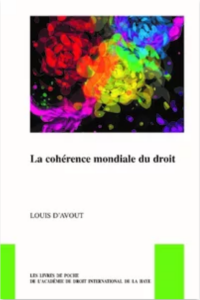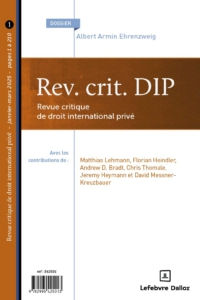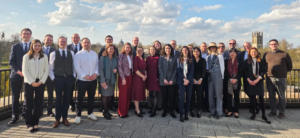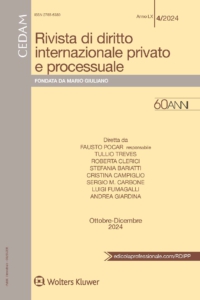Book Review: L. d’Avout’s La Cohérence Mondiale Du Droit (Brill)
 The general course in private international law delivered at the Hague Academy of International Law by Louis d’Avout during the 2022 Summer Session was published in the Academy’s Pocket Books Series (1 032 pages). Louis d’Avout is Professor at Université Paris Panthéon-Assas. In addition to his numerous scholarly works, readers of this blog may recall that his special course on “L’entreprise et les conflits internationaux de lois” was also published in the Academy’s Pocket Books Series in 2019. The general course is title « La cohérence mondiale du droit » (“The Global Coherence of Law”). The publication of a general course in private international law—particularly in the Academy’s Pocket Books Series—deserves the attention of the readers of this blog. The aim of this review is, modestly, to offer a glimpse into this important work so readers who are sufficiently francophone may be encouraged to read it directly, while those who are not are offered a brief overview of the author’s approach. Read more
The general course in private international law delivered at the Hague Academy of International Law by Louis d’Avout during the 2022 Summer Session was published in the Academy’s Pocket Books Series (1 032 pages). Louis d’Avout is Professor at Université Paris Panthéon-Assas. In addition to his numerous scholarly works, readers of this blog may recall that his special course on “L’entreprise et les conflits internationaux de lois” was also published in the Academy’s Pocket Books Series in 2019. The general course is title « La cohérence mondiale du droit » (“The Global Coherence of Law”). The publication of a general course in private international law—particularly in the Academy’s Pocket Books Series—deserves the attention of the readers of this blog. The aim of this review is, modestly, to offer a glimpse into this important work so readers who are sufficiently francophone may be encouraged to read it directly, while those who are not are offered a brief overview of the author’s approach. Read more

 Written by Hadrien Pauchard (assistant researcher and doctoral student at Sciences Po Law School)
Written by Hadrien Pauchard (assistant researcher and doctoral student at Sciences Po Law School)

